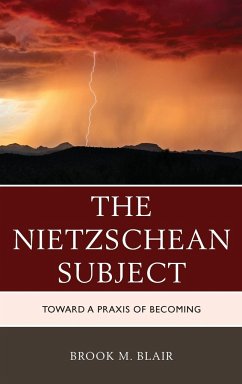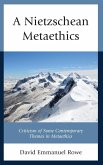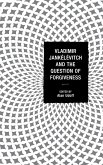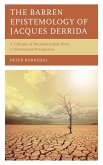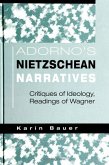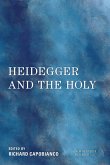Based upon an attentive reading of Nietzsche's writings and situated within a framework derived largely from such post-Nietzschean thinkers as Deleuze, Guattari, Klossowski, Foucault, Derrida, Negri, and Sloterdijk, this study develops a treatment of Nietzsche's philosophical enterprise as constituting a materialist metaphysics of pure becoming, of pure immanence and the power of the virtual. It thus seeks to challenge traditional characterizations of Nietzsche as laying claim either to the end of metaphysics or the circular repetition of the same. The study instead argues that Nietzsche's great conceptual triumvirate of the eternal return, the will to power, and the transvaluation of values be recast as invoking the groundless ground of a subjectless subject and, indeed, the repetition of difference rather than sameness. Distinguishing itself from the representational schemes set forth by the Platonic idea, the Christian God, or Hegelian reason and world-spirit, Nietzsche's undertaking is here characterized, rather, as inaugurating the age of energies and establishing a generative metaphysics no longer amenable to the inner essence of the concept or the inner soul of consciousness. While the first part of the study develops the philosophical background for this reappraisal of the Nietzschean enterprise, along with an accompanying treatment of the specific problems posed by Nietzsche's style and discourse, the second part of the study is directed more particularly to the historico-critical relationships between Nietzsche and his various precursors and heirs. Despite his frequent and often exorbitant to originality, Nietzsche's intellectual proximity to the culture of the sophists, the Renaissance world of Machiavelli, and the poet-philosopher Hölderlin demonstrates a long-standing tendency within Western thought towards what in Nietzsche's hands would eventually culminate in a counter-philosophy of pure becoming, later to be more fully realized in the writings of Nietzsche's greatest and most overlooked heir of the early-twentieth century, the Viennese novelist Robert Musil. The study thus spans a line extending from the Presocratics to postmodernity, with Nietzsche's great philosophical project serving as its essential fulcrum.
Hinweis: Dieser Artikel kann nur an eine deutsche Lieferadresse ausgeliefert werden.
Hinweis: Dieser Artikel kann nur an eine deutsche Lieferadresse ausgeliefert werden.

